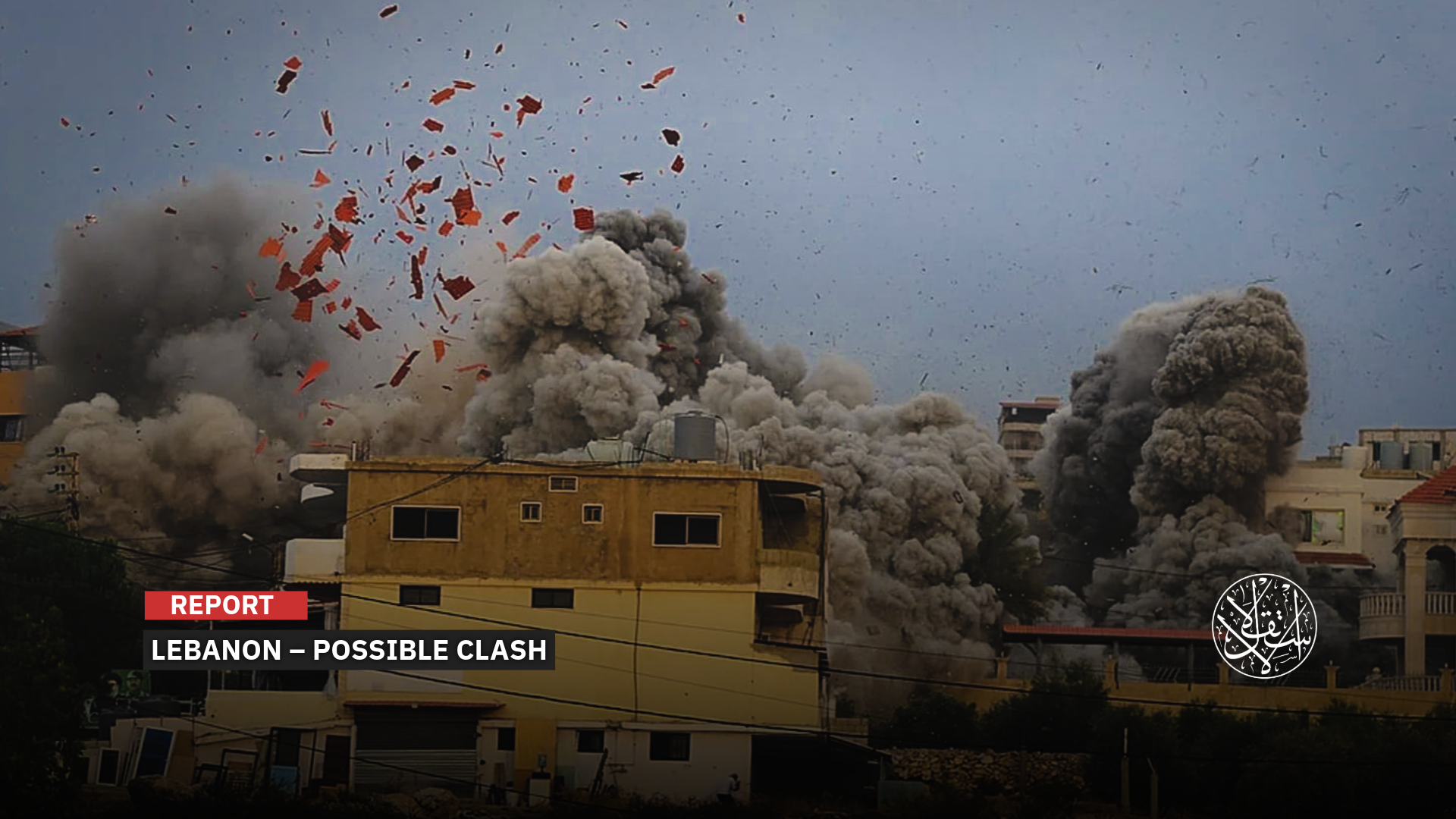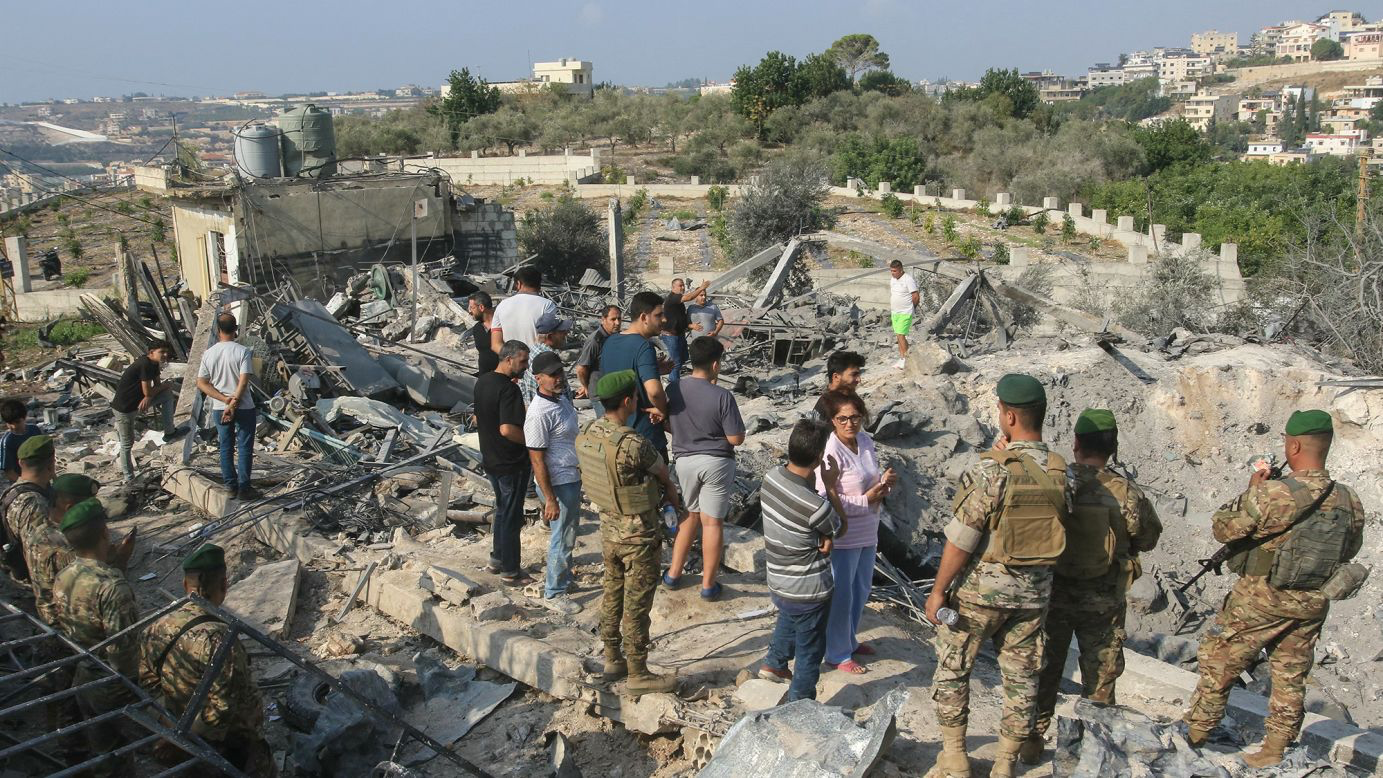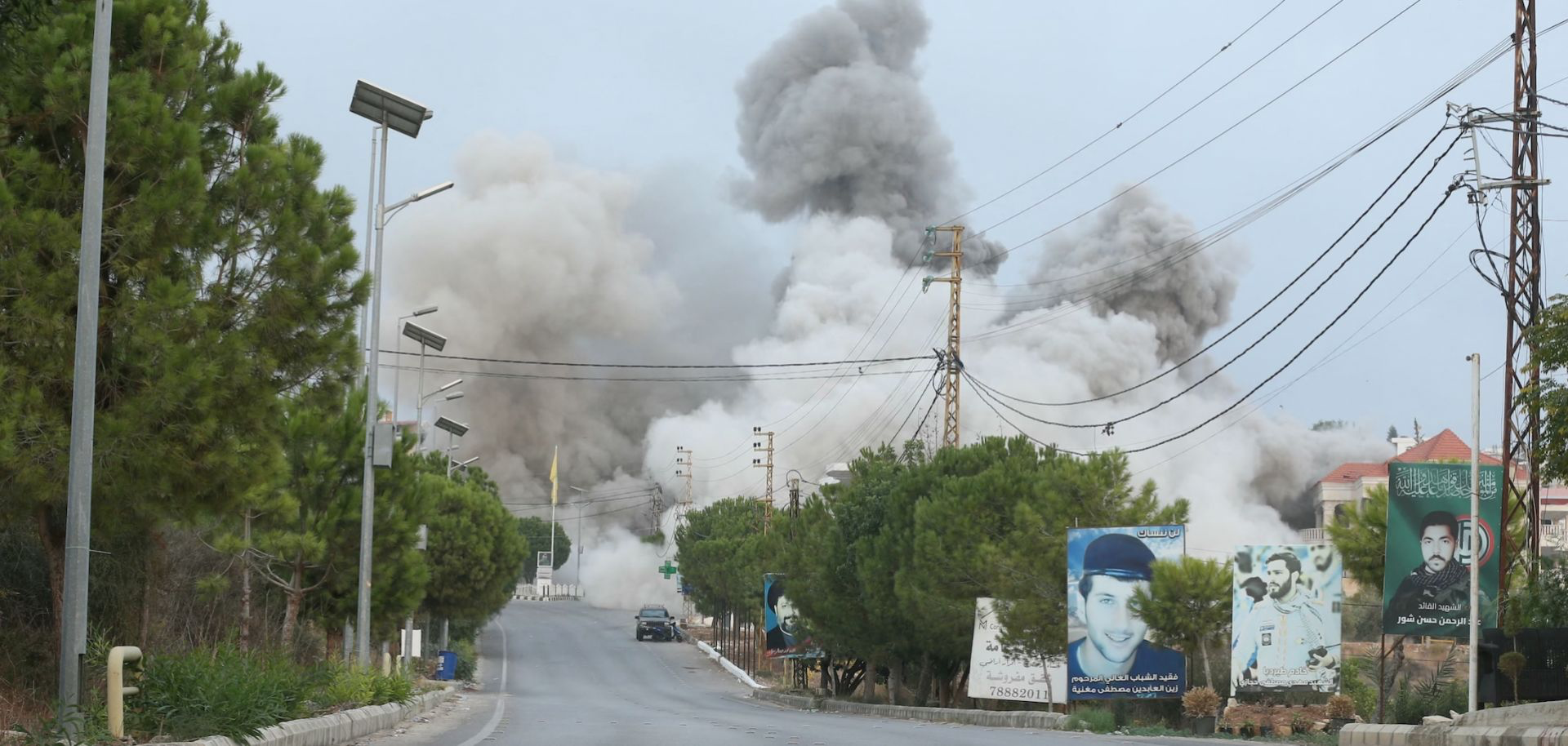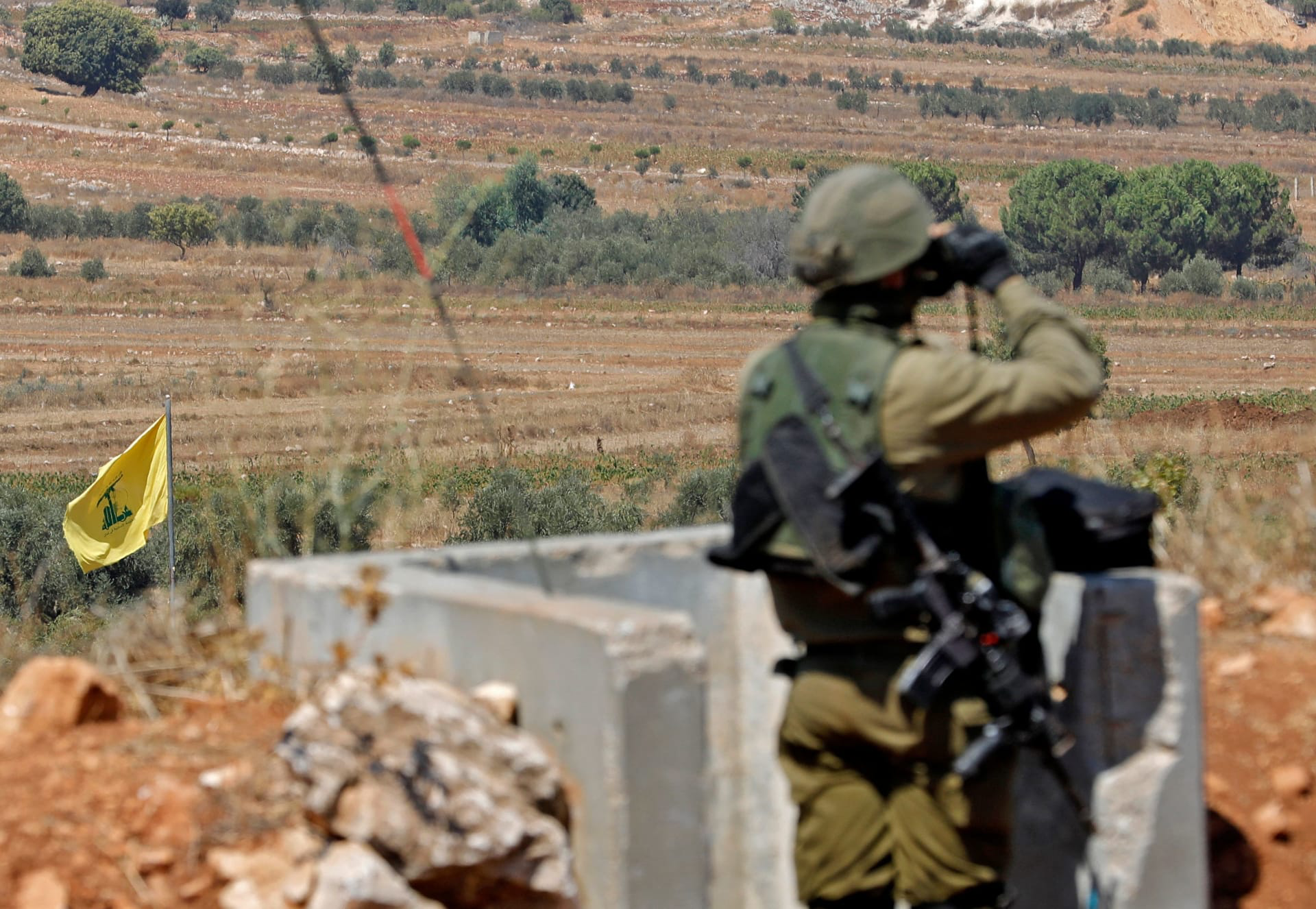Between the Israeli Ground Incursion and Aerial Escalation: Where Is Southern Lebanon Headed?

“The Lebanese president issued directives to confront any new Israeli incursion into the south of the country.”
In an incident described as the most serious since the ceasefire agreement between “Israel” and Hezbollah on November 21, 2014, an Israeli force infiltrated Lebanese territory at dawn on Thursday, October 30, penetrating more than 1,000 meters and carrying out an assassination targeting a civil servant in the municipality of Blida, in the Marjeyoun district of southern Lebanon.
The incursion began at 1:30 a.m., when the force stormed the municipality building and killed Ibrahim Salameh inside his office.
The operation continued until approximately 4:00 a.m., during which residents of the town reported hearing screams and cries for help from inside the building before the Israeli force withdrew toward the border.
Half an hour after the operation, the Lebanese army entered the site, and Civil Defense personnel transported Salameh's body to the government hospital in Marjeyoun, amid widespread public and official condemnation.
Israeli Escalation
A few hours after the Israeli incursion, specifically at 9:00 AM on October 30, Israeli warplanes launched a series of airstrikes targeting the Jarmaq-Mahmoudiya area in south Lebanon.
The airstrikes resulted in massive explosions that continued until midday, while Tel Aviv claimed that the recent airstrikes targeted Hezbollah's infrastructure and missile launch sites.
This operation is part of a series of repeated Israeli violations of the ceasefire agreement that followed the full-scale war between “Israel” and Hezbollah on October 8, 2013, after the escalation of border clashes that followed the Gaza War.
Since then, Lebanese and international authorities have documented more than 4,500 land, air, and sea violations, resulting in the deaths of over 4,000 Lebanese and injuries to approximately 17,000 others.
Meanwhile, reports confirm that the Israeli army continues to occupy five new hills in the south, in addition to other Lebanese areas it has controlled since the 2006 war.
Following the Israeli operation in the town of Blida, Lebanese President Joseph Aoun issued direct instructions to the army commander to confront any new Israeli incursion into the south of the country.
Although the Lebanese army has historically remained outside direct confrontations with Israel since the end of the 2006 war, President Aoun's move is unprecedented since he assumed the presidency in January 2015, reflecting the escalating level of field and political tension in the country.
Eyewitnesses reported that Israeli warplanes flew over the presidential palace in Baabda hours after the president ordered a response to any new incursion, a move interpreted by observers as a direct Israeli pressure tactic reflecting the fragility of the existing truce.
The presidential decision was immediately welcomed by Hezbollah, while Lebanese reactions on social media revealed a growing wave of concern about the country sliding into a new confrontation with “Israel”, especially given the intensification of Israeli airstrikes in recent days on southern Lebanon.
Meanwhile, Israeli officials escalated their rhetoric against Beirut. Israeli Prime Minister Benjamin Netanyahu—who is wanted by the International Criminal Court—said that Hezbollah is suffering successive blows but is trying to rebuild its capabilities.
He indicated that “Israel” will not allow Lebanon to become a new front against it, demanding that the Lebanese government fulfill its obligations under the ceasefire agreement and disarm Hezbollah.
For his part, Israeli Army Minister Israel Katz reiterated the same accusations, adding that the Lebanese president was stalling and Hezbollah was playing with fire, vowing to continue applying the utmost severity against any threat in the north.
President Aoun stressed that Lebanon has no option but to negotiate, adding that all wars end with negotiations, which by their very nature are conducted with the enemy, not with a friend.
His statements were interpreted as a call to avoid sliding into an open confrontation with “Israel”, while preserving Lebanon's right to defend its territory.

Fragile Agreement
On November 6, 2025, the Israeli army launched intensive airstrikes on wide areas of southern Lebanon, hours after issuing urgent warnings to residents to evacuate specific locations.
“The attacks targeted sites where Hezbollah was believed to be rebuilding its military capabilities, while the official Lebanese news agency reported that the Lebanese Civil Defense intervened to evacuate residents from several border villages after the warnings were issued,” it said in a statement.
Israeli military spokesman Avichai Adraee posted three simultaneous evacuation warnings via the X platform, including maps showing targeted buildings in the villages of Taybeh, Tair Dibba and Aita al-Jabal.
Later, “Israel” issued two additional warnings to two other towns located between four and 24 kilometers from the border with occupied Palestine, urging residents to stay at least 500 meters away from the designated locations.
About an hour after these warnings, Israeli airstrikes began, and the Lebanese Ministry of Health later announced that one person had been killed in the attacks.
In a separate development, Israeli officials threatened decisive action if the Lebanese government did not intensify its efforts to disarm Hezbollah and remove it from the border area, while Lebanese officials expressed concern about the potential for escalation into open conflict.
Tair Dibba mayor Farid Nanou told the Lebanese National News Agency: “We are in a very dangerous situation. If things continue in this direction, it means there is no hope, and no one knows where the consequences could lead.”
Although “Israel” intensified its airstrikes last year on sites it claims belong to Hezbollah in southern Lebanon, issuing advance evacuation warnings is a new and unprecedented tactic, raising questions about Tel Aviv’s intentions to expand the scope of operations or prepare for a new round of fighting.
Observers believe that the recent escalation reflects the failure of the de-escalation efforts led by the UN and the U.S. over the past few months, and that the fragile ceasefire agreement is on the verge of collapse amid the exchange of fiery rhetoric between the two sides.

Hezbollah's Message
On November 6, Hezbollah addressed an open letter to Lebanese President Joseph Aoun, Prime Minister Nawaf Salam, and Speaker of Parliament Nabih Berri, declaring its rejection of any attempt to draw Lebanon into political negotiations with Israel, while simultaneously affirming its legitimate right to resist the Israeli occupation.
The letter coincided with escalating tensions on the ground in southern Lebanon and the subsequent calls from Western powers to revive a new political track between Beirut and Tel Aviv, given the repeated violations of the ceasefire.
Hezbollah clarified in its message that “Israel” has not adhered to the ceasefire agreement, which was implemented in accordance with UN Security Council Resolution 1701 of 2006. This resolution stipulated the withdrawal of Israeli forces behind the Blue Line and the demilitarization of the area south of the Litani River.
It emphasized that the message aims to strengthen the unified Lebanese stance in the face of ongoing aggression and violations, and to thwart attempts to draw Lebanon into new negotiations that it believes will only serve Israeli interests.
It noted that Lebanon, along with Hezbollah, has effectively adhered to the ceasefire agreement since its inception, while “Israel” has continued its land, sea, and air violations without pause.
It accused “Israel” of engaging in political and military blackmail by imposing conditions designed to force a new political agreement that would extract Lebanese recognition of its interests in the region.
Regarding the issue of the Lebanese state's monopoly on weapons, Hezbollah affirmed that this matter is not being discussed in response to external pressure or Israeli blackmail, but rather within the framework of a comprehensive national dialogue aimed at developing an integrated strategy for defense, security, and the protection of national sovereignty.
It party criticized what it described as the government's hasty decision on the monopoly of weapons, arguing that it was mistakenly presented as a gesture of goodwill toward “Israel”.
In turn, Tel Aviv exploited this to demand the disarmament of the resistance as a condition for halting military operations—a condition, according to the statement, that was not included in the ceasefire declaration and cannot be imposed or accepted.
Hezbollah's message comes at a time of increasing international pressure on Beirut to curb the party's influence and disarm it. This makes the message a political stance and a dual challenge: to the Lebanese public, by reaffirming its commitment to the resistance option, and to the international community, by rejecting any settlement considered part of the post-war arrangements.

New Equation
Lebanese academic Dr. Muhammad Atwi believes that Hezbollah's recent message definitively confirms that the party is not prepared to surrender its weapons, is not engaged in any negotiations with “Israel”, and will continue its resistance despite all internal and external pressures.
In an interview with Al-Estiklal, he noted that the party's statement reflects a deeper predicament facing Lebanon today.
“The country no longer faces a scarcity of options, but rather a complete lack of them, amid a historic turning point sweeping the region and reshaping its political and security balances,” he added.
He explained that Hezbollah, which was an influential regional player between 2006 and 2024, has gradually been removed from that equation after the balance of power shifted and the deterrent effect provided by its weapons ended following its defeat in the last war with “Israel”.
He raised a fundamental question about the viability of Hezbollah continuing to possess its weapons in light of a new Lebanese and regional reality that necessitates a different approach—one not based on overwhelming force, but on redefining security and sovereignty from a comprehensive national perspective.
He pointed out that Israel's plan since the beginning of the recent military operations has been to completely change the rules of engagement in southern Lebanon by imposing a new security equation that neutralizes the south and separates it from Hezbollah's influence, even if this comes at the expense of the Lebanese state itself.
He noted that “the Israeli message is clear: any future negotiations with Lebanon will be conducted under fire, not under the diplomatic umbrella,” in an attempt by Tel Aviv to impose the disarmament of Hezbollah by force instead of dialogue or political understandings.
He argued that holding the Lebanese state solely responsible for confronting this escalation contradicts reality, because Hezbollah is an integral part of the state itself and cannot be separated from it or treated as a parallel entity.
Nevertheless, Mr. Atwi emphasized that the weakness of political will in Lebanon does not mean a complete absence of options, considering that the future of southern Lebanon will be decided in the arena of power balances, not in negotiation halls.
Sources
- Disarmament or protecting the homeland? A Lebanese debate after Israeli airstrikes [Arabic]
- Hezbollah rejects any attempt to draw Lebanon into negotiations with Israel [Arabic]
- Israel-Lebanon: Negotiations under fire? [Arabic]
- Lebanese President: Continued Israeli occupation hinders the plan to restrict weapons [Arabic]
- The Israeli army carries out an operation in the town of Blida in southern Lebanon and withdraws after two hours [Arabic]













